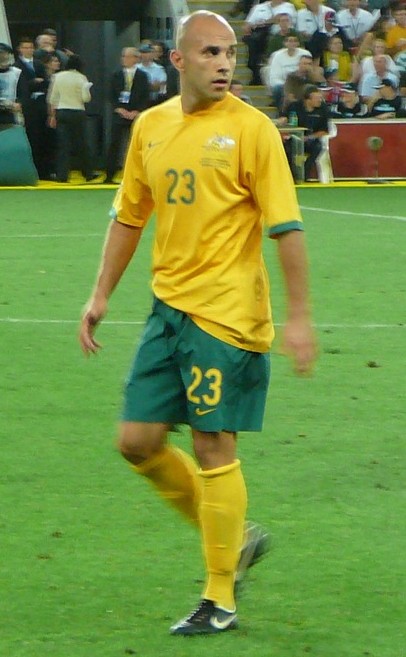Most suspected that Australia
manager Ange Postecoglou would select a young side for the upcoming World Cup,
but few perhaps were able to envisage the aspect of the 2014 Socceroos.
There are only a few readily recognizable
faces in the squad, with Postecoglou true to his word in selecting ten players of
his initial 30 from the A-League. As expected, there was no room for
longstanding captain
and lightning rod Lucas Neill, while the recent international exiles of Emerton, Holman, Schwarzer
and Ognenovski mean the Aussies will fill their gold kits with an almost
patriotically green squad.
Five Socceroos survive from
Australia’s watershed 2006 campaign – Luke Wilkshire, Joshua Kennedy, Tim
Cahill, Mark Milligan and Mark Bresciano – and they will be expected to provide
most of the veteran professionalism required to extract the best from a group
described best as youthful and perhaps even naïve.
Asia’s brotherhood of ageing bruisers
are now no more than a bolded entry in gilt-edged history books. Australia is
looking to the future with a special focus not on the 2014 World Cup but on
success at next year’s home Asian Cup.
 |
| Bresciano, resident Old Man courtesy: en.wikipedia.org |
Pete Smith suggests this squad is
nothing if not fresh and links
to the Golden era of Socceroo football all but gone. Postecoglou has opted
for dynamism and exuberance – especially in defensive positions – and a squad unjaded
by long exposure commuting globally to represent a nation with only a passing
interest in local football.
This is probably the best squad
Postecoglou could select. The team also accurately represents Australia’s standing
in the football world – there are big gaps between some numbers in FIFA’s
rankings. Locals
also seem happier with this lineup of exciting question marks than one highlighting
staid veterans.
Featuring only two players from
Europe’s big four leagues, whoever comprises the final 23-man roster will
hardly be hampered by expectations. These Socceroos are also unscarred by past
unrealistic hopes engendered by a wonderful run under Guus Hiddink, the ravages
of age on bigger bodies or more recently, thumpings against quality opposition.
What they have is pace, a new identity based around Postecoglou’s
preferred passing game and a typical Australian passion for the contest.
While mandated by his superiors (and
common sense) to empower a new youthful team, Postecoglou’s quick revamp may
have hastened the departure of players like Schwarzer and Holman who may have
played a key role in Brazil. Without these battle-scarred troops, the coach
risks marking another band of younger, more impressionable players in the toughest
slate of matches any team will play. With the Asian Cup (and the 2018 World
Cup) more realistic targets for Aussie success, failure at the upcoming
tournament might have longstanding consequences.
The flip side of callowness is a youthful
confidence that serves sportsmen well. While there are only weeks to go until
the tournament, Postecoglou must use that time to make sure the coin comes down
on the right side for his young Socceroos.
